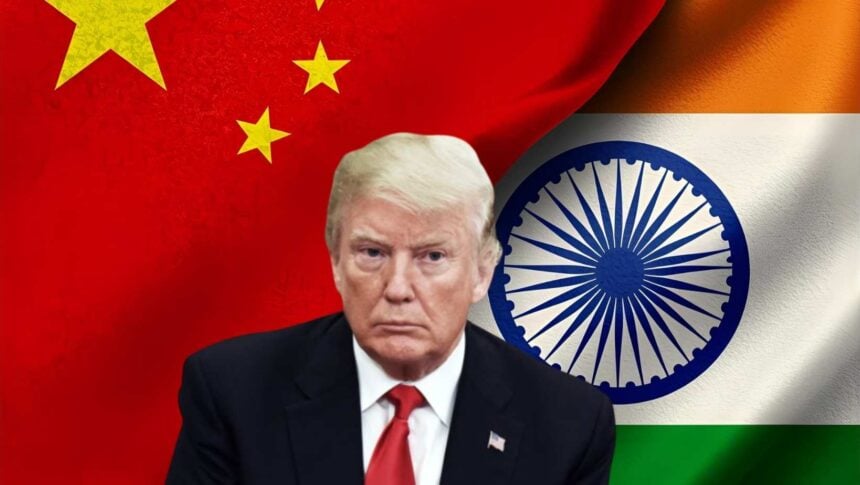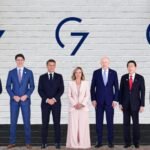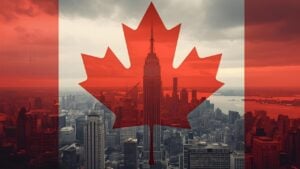U.S. President Donald Trump has urged the European Union to levy tariffs of up to 100% on imports from China and India, framing the move as a way to undercut Russia by targeting two of its biggest oil customers. He indicated the United States would be prepared to act alongside Europe if Brussels signs on, according to people familiar with the talks.
The operative request is sweeping: coordinate transatlantic duties that would sharply raise the cost of Chinese and Indian goods entering the EU, with the stated goal of reducing the revenues Moscow draws from global energy sales.
The push emerged during consultations in Washington with senior EU officials and was communicated directly to the bloc’s sanctions envoy, David O’Sullivan, people briefed on the call said.
Brussels has typically preferred sanctions over broad tariffs and will have to weigh legal, political, and economic risks before embracing the U.S. approach. European officials have not announced a timetable for a decision, while Beijing and New Delhi are likely to resist punitive trade measures tied to their energy relationships.
Reports of the request circulated widely on Wednesday as the EU delegation wrapped meetings in Washington.
If adopted at scale, 100% duties would touch a wide range of categories, from machinery and autos to consumer electronics and chemicals, and could prompt retaliation that reroutes trade or lifts costs for manufacturers on both sides of the Atlantic.
Currency moves, freight rates, and energy prices would be immediate pressure points for investors tracking second-order effects.
The overture lands as Washington and New Delhi keep talking over trade barriers after a recent rise in U.S. tariffs on Indian goods. Trump said this week he hopes to speak with Indian Prime Minister Narendra Modi soon, signaling that parallel negotiations remain in play even as he presses Europe for a harder line.
Traders will focus on whether the EU considers targeted lists over blanket duties, whether Brussels seeks carve-outs for critical inputs, and whether Washington proceeds unilaterally if Europe hesitates.
Any movement toward synchronized tariff calendars, even as a negotiating tactic, would likely show up first in export-order data, shipping bookings, and corporate guidance from Europe-exposed multinationals.



















